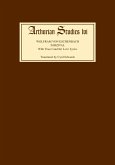This first sustained exploration of W.G. Sebald's engagement with Jews and Jewishness provides new insights into controversial tropes and stereotypes in his narrative prose.
German writer W. G. Sebald (1944-2001) has been hailed, together with Primo Levi, as the "prime speaker of the Holocaust," a breathtaking claim that casts Levi, survivor of Auschwitz, and Sebald, progeny of the German perpetrator generation, in an unlikely pairing that confirms Sebald's status as the preeminent German writer concerned with the Jewish experience in recent history. Recipient of a Koret Jewish Book Award for his "extraordinary evocation of the last century's greatest trauma," Sebald has been widely valorized for restoring individuality to the Jewish victims he portrays.
Sebald's Jews challenges Sebald's position as the moral conscience of a nation struggling to repair the German-Jewish relationship. It argues that despite the varied and quasi-documentary life stories of the Jews who people his narrative prose, and despite his intentions, Sebald's elaborate figural writing fashions Jewish characters as tropes for the conflicts that troubled his generation, allegories that vitiate Jewish individuality and evoke age-old and malign Jewish stereotypes. The book provides new insights into Sebald's ambiguous engagement with Jewishness by revising the notion that he restores individuality to Jewish lives and avoids the generalized treatment of Jews he excoriated in the writing of his German peers. The study reflects a shift in Sebald research that reassesses his revered position by examining controversial aspects of his oeuvre. It provides a much-needed broadening of Sebald scholarship.
German writer W. G. Sebald (1944-2001) has been hailed, together with Primo Levi, as the "prime speaker of the Holocaust," a breathtaking claim that casts Levi, survivor of Auschwitz, and Sebald, progeny of the German perpetrator generation, in an unlikely pairing that confirms Sebald's status as the preeminent German writer concerned with the Jewish experience in recent history. Recipient of a Koret Jewish Book Award for his "extraordinary evocation of the last century's greatest trauma," Sebald has been widely valorized for restoring individuality to the Jewish victims he portrays.
Sebald's Jews challenges Sebald's position as the moral conscience of a nation struggling to repair the German-Jewish relationship. It argues that despite the varied and quasi-documentary life stories of the Jews who people his narrative prose, and despite his intentions, Sebald's elaborate figural writing fashions Jewish characters as tropes for the conflicts that troubled his generation, allegories that vitiate Jewish individuality and evoke age-old and malign Jewish stereotypes. The book provides new insights into Sebald's ambiguous engagement with Jewishness by revising the notion that he restores individuality to Jewish lives and avoids the generalized treatment of Jews he excoriated in the writing of his German peers. The study reflects a shift in Sebald research that reassesses his revered position by examining controversial aspects of his oeuvre. It provides a much-needed broadening of Sebald scholarship.
Dieser Download kann aus rechtlichen Gründen nur mit Rechnungsadresse in A, D ausgeliefert werden.









